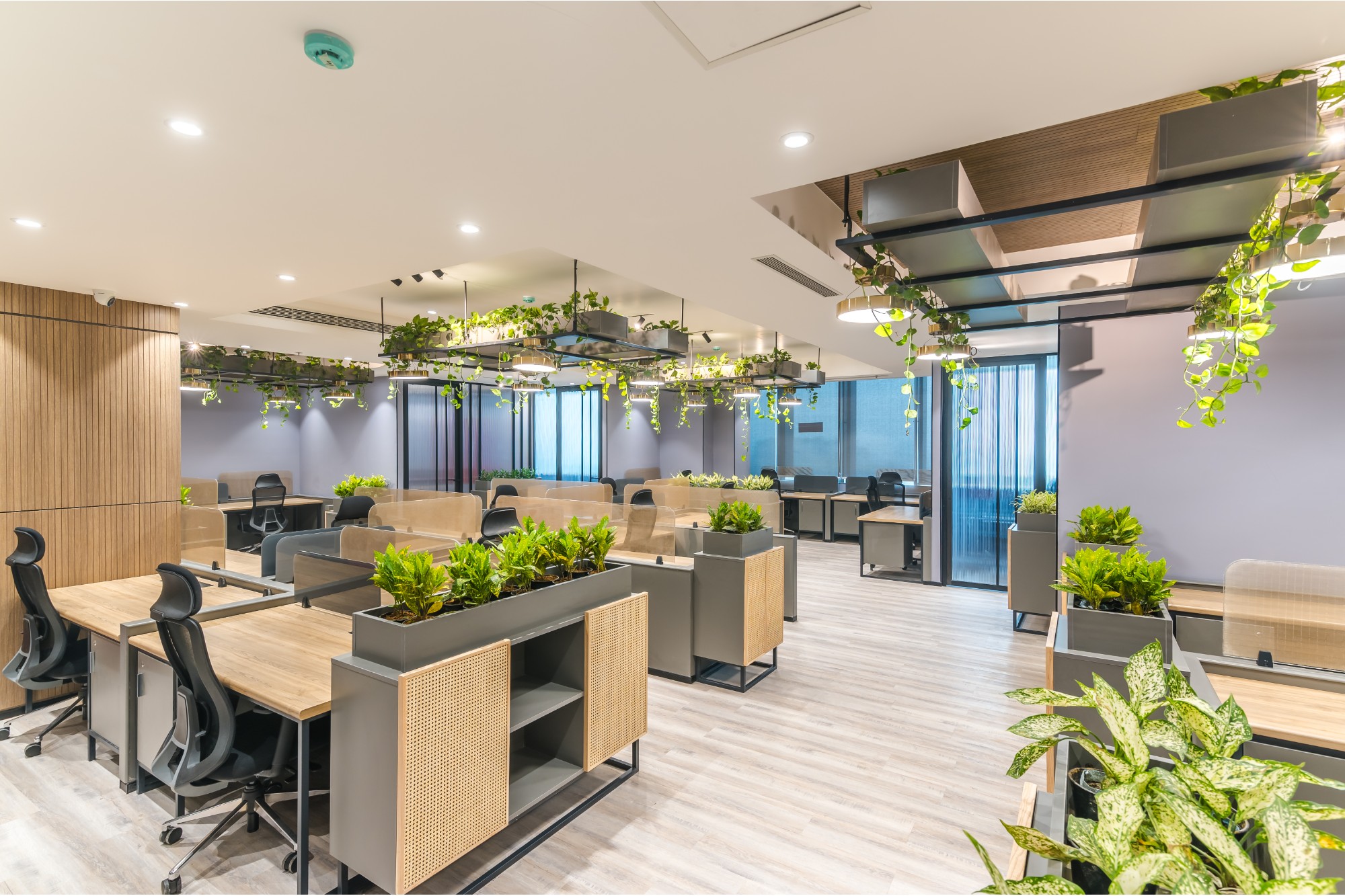Future workspaces influenced by sustainability and wellness

Tania Bhatia Shringi, Founder & Principal Architect of Studio Novoforma discusses how biophilic design and smart technology can transform office spaces to improve culture and efficiency.
Offices have long been places of routine, with cramped stiff cubicles and isolated layouts. However, as awareness of the environmental influence on well-being and productivity develops, offices are being redesigned as open, airy environments that inspire creativity and community. A thoughtful workspace design that prioritises employee comfort and well-being may foster human connection, boost everyday productivity, and affect how employees interact with a company’s ideals. As sustainability becomes a basic business component, creating offices that prioritise environmental responsibility will enable businesses to effectively reflect these ideals.
Reflecting core values through Design
Every design decision, from materials to finishes, may reflect the company’s character and bring its principles to life. Modern workplaces are adopting sustainable, eco-friendly materials that effortlessly combine usefulness, environmental responsibility, and aesthetics. For example, reclaimed wood, recycled metals, and low-VOC paints can indicate a desire to reduce environmental effect. From energy-efficient lighting to locally sourced furnishings, every element demonstrates a commitment to sustainability and craftsmanship, resulting in environments that exude quality and thoughtful design.
Biophilic design for innovation and wellness
Integrating natural elements into built environments has become a top priority for businesses looking to boost wellbeing and creativity. Spaces with muted colour palettes, natural lighting, organic materials, and textures can have a good impact on employee behaviour and promote mental and physical health. Green walls, indoor plants, and large windows can provide organic components, create a sensation of being in nature, relieve stress, and reflect eco-conscious ideals that prioritise employee well-being. This holistic approach may promote a culture of caring and connection, demonstrating that work and wellness can coexist.
Adaptive spaces for inclusion and purpose
Companies must actively prioritise diversity and employee requirements by using intelligent spatial planning, such as flexible work zones, dedicated wellness rooms, and universally accessible design. These features can improve functionality while also creating a sense of belonging. Adaptive and reconfigurable workspaces, which include areas for collaborative work and self-reflection, can also improve flexibility and efficiency. This strategy creates a welcoming, adaptable atmosphere that accommodates a variety of work styles and individual preferences, establishing a culture of inclusion and responsiveness.

Technology integration for sustainable efficiency
Integrating smart technology may offer firms with an important resource for incorporating sustainability into their operations. Energy-efficient lighting, automated HVAC systems, and IoT-enabled resource management systems can all help to minimise a building’s carbon footprint. Companies can reduce their environmental effect and promote an eco-conscious attitude that aligns with their brand values by implementing resource-efficient technology.
Crafting culture beyond spaces
A well-designed office can influence and raise business culture. Sustainable design choices may create a work environment that encourages mindfulness, teamwork, and a sense of responsibility. Employees who work in an environment that matches the company’s values are more likely to feel connected to its mission and invested in its goals.
As a result, implementing sustainability into workplace design does more than optimise physical space; it creates a setting that symbolises a company’s basic values—responsibility, respect, and commitment to a healthier future. As sustainability becomes more important to modern business practices, workspaces must change to reflect these ideals, fostering environments in which teams may thrive while positively benefiting the globe.
For more details, visit: https://www.instagram.com/studionovoforma/
Cookie Consent
We use cookies to personalize your experience. By continuing to visit this website you agree to our Terms & Conditions, Privacy Policy and Cookie Policy.











